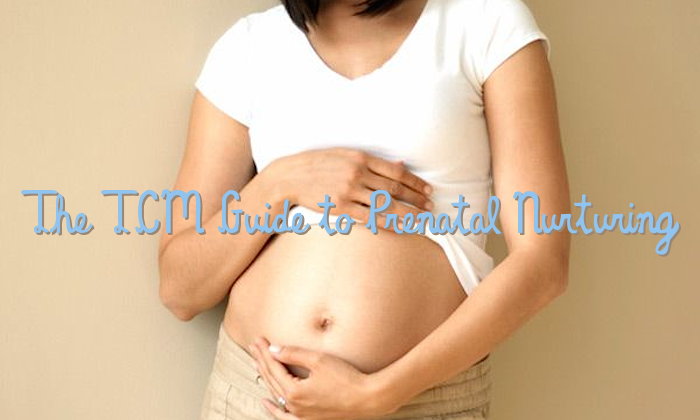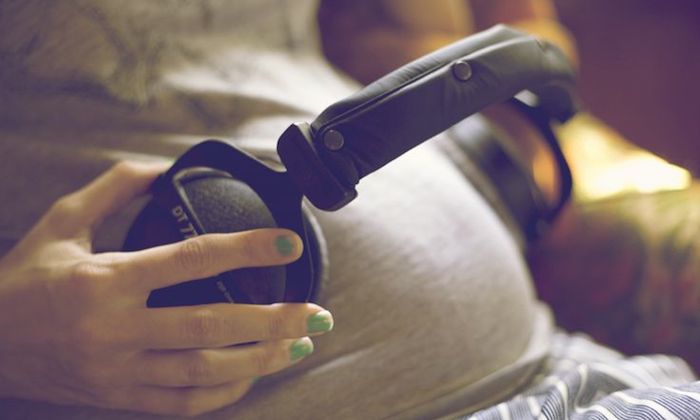
 Post Category - WellnessWellness - Post Category - HealthHealth
Post Category - WellnessWellness - Post Category - HealthHealthPlease welcome Lim Xiang Jung from Urban Rehab to give us her unique take on ancient Traditional Chinese Medicine (TCM) philosophies, as practised through a modern lens. This week it’s all about how to nurture your baby before birth. There is SO much great info in here for pregnant mamas!
“Prenatal education” is a term coined in modern times, but the concept of nurturing the unborn child, otherwise known as Tai Jiao(胎教), has existed since ancient times. The earliest written records of Tai Jiao date back to the Han dynasty. The famous imperial physician Chao Yuan Fang of Sui dynasty pointed out that Tai Jiao is in fact the intersection of external objects/stimuli, and he believed that the behaviour, the likes and dislikes of mothers, and what they see and hear during pregnancy can have a subtle but significant effect on the unborn child.
With the help of modern technology, it’s been shown that the fetus isn’t unconscious while in the mother’s womb, but is in fact aware of changes happening around it. Not only can it sense changes in the mother’s body and emotions, it is also receptive to external stimuli such as sound, light and touch, and is already capable of memory creation from its experience of growing in the womb. Therefore, love, care and appropriate beneficial stimulations can all have a positive impact on the physical and mental development of the fetus. At the same time, such positive stimulants can stir up interest in the fetus towards the world that it’s going to be born into. All these are the scientific basis for Tai Jiao, showing that it’s not only important, but also necessary.

In TCM, Tai Jiao has both broad and specific definitions. The broad definition of Tai Jiao applies to the physical, dietary and environmental aspects that mothers should regard during pregnancy to provide conditions for good physical development of the fetus. The specific definition of Tai Jiao applies to the mental and moral aspects that mothers should observe and cultivate to maintain a healthy state of mind, which can in turn promote intellectual development and inculcate good character in the fetus.
General requirements and methods for Tai Jiao as laid down by ancient physicians for pregnant mothers include:
- staying in a comfortable and peaceful environment
- maintaining a sense of calm
- listening to soothing music
- reading
- taking scenic walks
- talking to friends and families
- stroking the belly frequently
In addition, mothers should avoid extreme emotions, nervous over-thinking, visual obscenities, frightening or violent stimuli, and over-stimulating loud music.

Moral cultivation calls for kindness in thoughts and actions during a mother’s pregnancy. The famous Chinese gynaecology classic text Zhu Bing Yuan Hou Lun says pregnant mothers should “sit without evil thoughts, stand without biased views, move not with crooked minds, watch no ugly sights and speak no unkind words”. The unborn child will be positively affected by such immense righteousness and good from the mother, ultimately leading to the development of good character and temperament in the child.
Another Chinese gynaecology classic text says “to practise Tai Jiao is to be peaceful”. What this means is that pregnant mothers should learn to control their emotions and avoid excessive worrying and overthinking to help ensure the smooth circulation of qi and blood, which is beneficial to the growth and development of the fetus.
Modern medical researches have shown that fetal growth and development requires nutrients and oxygen that are supplied by the mother’s blood through the placenta. Emotional changes of pregnant mothers can in turn affect the hormonal secretion and chemical composition of the blood.

Positive emotions can result in an increase of chemical compounds that are beneficial to the growth and development of the fetus, while negative emotions can increase harmful compounds that can result in damaging effects on the fetal nervous system and other biological tissues. Stress and anxiety of pregnant mothers can cause excessive secretion of adrenal hormones, which may result in fetal malformations. According to clinical observations, emotions of pregnant mothers can also have a great influence on fetal activity. The calm, relaxed mood of mothers can lead to regular fetal activity while stress and anxiety can lead to fetal hyperactivity. This may in turn result in hyperactivity and short-temperedness in the child later on.
Pregnant mothers should carry out planned prenatal sensory and motor training for the unborn child during peak periods of its antenatal development. TCM believes that the fetus can already perceive external stimuli from the third month of pregnancy onwards, so sensory and motor training should start then. This is because “during this time, the fetus starts to take its form but is capable of changing in accordance to what is perceived.”
Modern medical studies have shown that the organs of the fetus start to take shape and that the skin has the ability to feel and perceive its surroundings at the end of the first month of pregnancy. In addition to carrying out main bodily functions like breathing and absorbing nutrients, the fetus can now perform actions like kicking, turning, bending, squinting, swallowing etc. The auditory functions kick in at the fourth month of pregnancy, when the fetus begin to respond to sounds and vibrations from the mother’s blood flow, heartbeats, peristalsis and even sounds outside of the mother’s body.

Auditory sensory training
Speaking, reciting poetry, singing, playing melodious music to the fetus, engaging in soft conversations with people, and taking scenic walks amidst the relaxing sounds of nature such as chirping birds, singing insects or trickling water are just some of the ways to help promote development of the fetal auditory and nervous systems.
Specifically speaking, there are two kinds of prenatal music: one for the pregnant mother, another for the fetus. Mothers should listen to peaceful and melodious music pieces that are mainly made up of notes E and C as they can bring about the effect of relaxation. The fetus should listen to lively and cheerful music that is mainly made up of note C.
When choosing music to be played to the fetus, it should be noted that the rhythm of the music should not be too fast and the volume should not be too high. Violent and loud music may cause hyperactivity of the fetus and may result in damage to their underdeveloped nervous systems. Also avoid high frequency music that is over 2000 Hz. The duration for playing music to the fetus should be limited to 10 to 15 minutes.

Visual sensory training
By the 24th week of pregnancy, the fetus has the ability to open its eyes. During this time, visual sensory training can be carried out to stimulate the fetus visual development, increase its visual scope and regulate its circadian cycle. For example, point a soft torchlight directly at the mother’s belly, turning it on and off for 30 seconds. Repeat three times a day. When turning the light on and off, mothers can talk to the fetus, telling it what time it is.
Stroking motor training
Frequent stroking of the belly by pregnant mothers can stimulate movement of the fetus within the womb, which aids in the development of the motor system and enhances the motor skills of the child after he/she is born.
The fetus will start to move within the womb after the seventh week of pregnancy, and mothers can feel the fetus movements after the fourth month of pregnancy. Fetal movements include swallowing, sucking, clenching, kicking and turning. Stroking can bring about these fetal movements and serves as a form of “exercise” for the fetus in the womb.
Before doing the stroking motor training, mothers should make sure they’ve cleared their bladders and bowels. While lying face up and staying as relaxed as possible, use both palms to lightly stroke the belly for 5 minutes. Such stroking motor training should be done at about 8pm at night, as the fetus usually sleeps in the day and wakes up in the evenings. Make sure to pay attention to fetal reactions. If the fetus is moving slowly and gently, then the stroking can be carried on. If the fetus is moving rather vigorously, it is an indication that the fetus is uncomfortable with the stroking and it should be stopped.
Thank you, Xiang Jun! For more about Urban Rehab’s combination of TCM with a modern medical perspective, be sure to visit their website or one of their three convenient locations across Singapore.






 View All
View All




 View All
View All











 View All
View All





